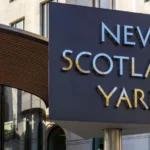
US President Donald Trump announced on April 7 that his administration is engaged in direct talks with Iran regarding its nuclear program, stating, “We’re having direct talks with Iran. On Saturday, we have a very big meeting.”
Trump emphasized these were truly direct negotiations, not through intermediaries: “A lot of people say, oh, maybe you’re going through surrogates or you’re not dealing directly, you’re dealing through other countries. No, we’re dealing with them directly.” He suggested a diplomatic solution “would be preferable to doing the obvious,” seemingly referencing military action against Iran, which US ally Israel has undertaken twice in the past year.
Iran, however, contradicted Trump’s claim. Foreign Minister Abbas Araghchi stated that indirect talks would occur in Oman, with himself and US Special Envoy Steve Witkoff communicating through Omani Foreign Minister Sayyid Badr Albusaidi as intermediary. Araghchi described the meeting as “as much an opportunity as it is a test.”
This potential diplomatic breakthrough follows Trump’s March letter to Iranian authorities demanding nuclear talks and threatening military action absent a response. At that time, Iran’s Supreme Leader Ayatollah Ali Khamenei rejected negotiating with “bullying governments.”
Iran’s position on direct talks has shown some flexibility. President Masoud Pezeshkian suggested in September that direct engagement was possible if the US demonstrated good faith. However, Araghchi recently questioned Washington’s sincerity, asking, “If you want negotiations, then what is the point of threatening?”
Trump, who describes himself as a “peacemaker,” seeks to ensure Iran never develops nuclear weapons. During his first term, he withdrew from the Joint Comprehensive Plan of Action (JCPOA), which had restricted Iran’s nuclear activities in exchange for sanctions relief. Trump criticized the deal for not addressing Iran’s conventional weapons and for its time-limited restrictions (10-15 years). He has since applied “maximum pressure” through intensified sanctions.
Iran’s negotiating priorities include economic sanctions relief, access to the SWIFT money transfer system, and international investment opportunities. Tehran also wants recognition of its nuclear program, including rights to uranium enrichment and centrifuge use.
The starting positions of both sides are now further apart than during initial JCPOA negotiations. Iran seeks more extensive sanctions relief than under Obama, while Trump has threatened military action if Iran refuses to negotiate.
Iran maintains its nuclear program serves peaceful purposes, with Khamenei issuing a religious ruling against nuclear weapons in 2003. However, Western analysts note Iran’s advancing capabilities, including a stockpile of uranium enriched to about 60 percent—unprecedented for a non-nuclear state. While denying nuclear weapon ambitions, Khamenei asserted in March, “If we wanted to build nuclear weapons, the US would not be able to stop it.”












Be the first to leave a comment